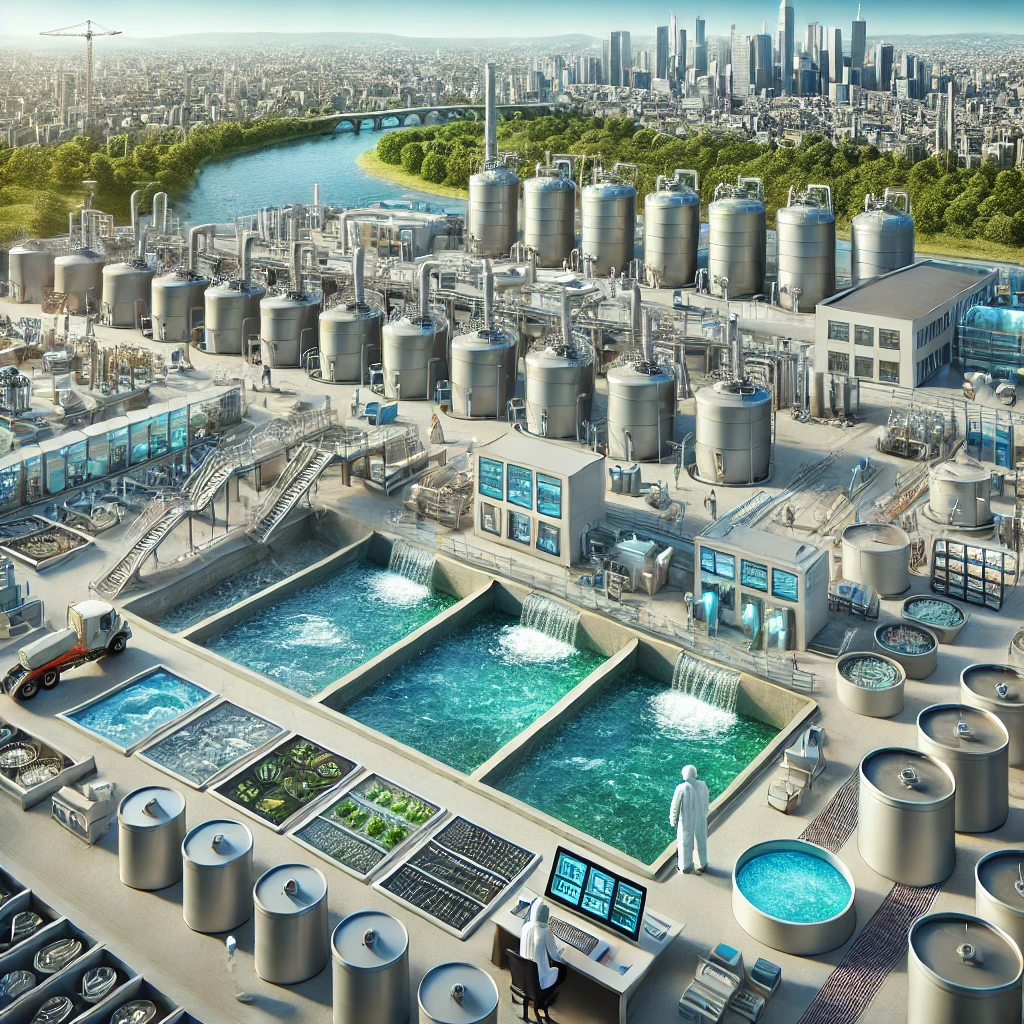Deputy Minister of Water and Sanitation, Sello Seitlholo, has urged municipalities with dysfunctional wastewater treatment works (WWTW) to make infrastructure repairs a top priority. The call for action comes amid concerns over the state of wastewater facilities, pollution in water resources, and the growing impact on South Africa's water security.
Seitlholo delivered his message during a recent visit to the uMhlathuzana, Umhlanga, and Phoenix Wastewater Treatment Works in the eThekwini Metropolitan Municipality, KwaZulu-Natal, where he assessed the ongoing progress in restoring infrastructure that was damaged by floods over two years ago.
EThekwini Municipality's Collaborative Approach with uMngeni-uThukela Water
EThekwini Municipality has entered into a bulk wastewater operation and maintenance agreement with the uMngeni-uThukela Water board, covering the operation and maintenance of ten critical wastewater treatment plants that manage approximately 90% of the municipality's sewage. The partnership is intended to ensure that essential repairs and operations are handled efficiently and sustainably.
"It is encouraging to see that eThekwini Municipality recognises the importance of collaborating with uMngeni-uThukela Water. This partnership provides an opportunity to resuscitate, operate, and maintain essential infrastructure," Seitlholo stated. He noted that while the facilities are not yet fully operational, significant progress has been made, particularly in Umhlanga, where 50% of the plant is now functioning following severe damage from previous floods.
Addressing the Country’s Sanitation Crisis and Water Pollution
Seitlholo highlighted pressing concerns regarding the lack of attention to sanitation in South Africa, particularly in the context of wastewater management. He emphasized that untreated wastewater, combined with industrial and urban pollution, poses a major risk to the nation’s water quality, making it costlier to treat raw water from rivers and other natural sources.
"Our water security is under threat due to the extensive pollution of water resources. We cannot afford to ignore this reality," Seitlholo warned. He pointed out that pollution not only affects the economy and increases water treatment costs but also endangers public health, livelihoods, and agricultural productivity.
He urged all South Africans to take responsibility for protecting water resources. “I’m calling on all municipalities with failing wastewater treatment plants to prioritise the restoration of their infrastructure immediately,” Seitlholo said, adding that pollution must be stopped to ensure the future of clean and affordable water access for all.
Raising Awareness and Expanding Efforts Across Provinces
Seitlholo also expressed his commitment to raising awareness on water pollution and sanitation issues across all provinces. He plans to lead campaigns that engage both municipalities and communities, encouraging everyone to take an active role in reducing pollution and advocating for clean water.
“Water is a shared resource, and its protection is a shared responsibility. We will continue to engage with communities, municipalities, and water boards nationwide to ensure that water safety and sanitation receive the attention they deserve,” Seitlholo affirmed.
The Economic and Social Cost of Inaction
Beyond the immediate health and environmental impacts, Seitlholo highlighted the economic implications of polluted water resources. When raw water is heavily polluted, the cost of treatment increases substantially, which can drive up the cost of water for municipalities, businesses, and households.
"We must consider the economic impact, as well as the damage to the livelihoods of people, farmers, and businesses. Clean water is essential for development, and every South African has a role to play in safeguarding this critical resource,” Seitlholo said.
Moving Forward: A National Priority for Sustainable Water Infrastructure
In response to Seitlholo’s call to action, the Department of Water and Sanitation aims to continue working closely with municipal governments to address wastewater management deficiencies. Efforts include prioritizing funding, increasing technical support, and ensuring compliance with environmental standards to protect water resources from industrial and urban pollutants.
Seitlholo concluded by emphasizing that protecting water quality and investing in sustainable sanitation infrastructure are vital steps towards a water-secure future. Through proactive investment in water treatment facilities and heightened awareness around pollution, South Africa can make significant strides in ensuring access to clean water for all citizens.











